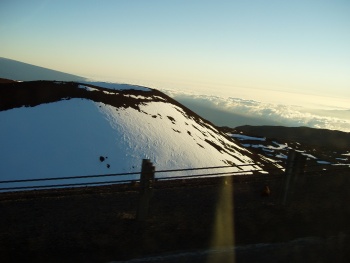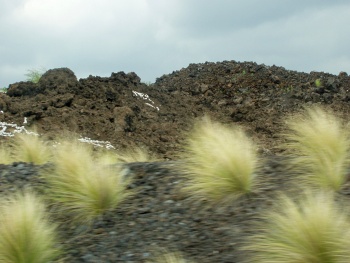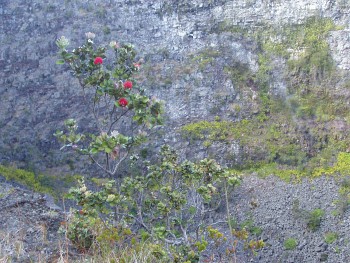When we visited Oahu two years ago, we noticed that aloha was everywhere, and meant everything. Aside from hello and goodbye, it seemed to represent an easy-going, positive attitude. There were signs all over the place saying things like “Drive with aloha.”
Then there was mahalo, Hawaiian for “thank you,” which is used everywhere in place of the English phrase. Either it’s part of the wave of Hawaiian identity, or it’s mandated by the Hawaii tourist board.
Aloha is all over the big island as well, but not quite to the same extent. We didn’t see a single “drive with aloha” sign this time around, for instance.
What we did see was kapu. Kapu is the Hawaiian form of taboo, a word which has lost much of its meaning both in modern English usage and in modern Hawaiian usage. In traditional polynesian cultures, a taboo was a sacred prohibition, and violation was often punishable by death (generally by way of being chosen for a human sacrifice). These days, kapu mainly shows up on “No Tresspassing” signs—of which there are plenty!



This is one of those rare occasions where I’ll say it’s a good thing words have lost their meaning.
Well, considering that a lot of the “No Trespassing” signs were on large estates, and several of them were next to “No Hunting” signs, maybe kapu hasn’t lost as much meaning as would be nice. And that’s not even considering the rumors of snipers guarding the pakalolo patches….
Hmm, I imagine something like this would work:
NO TRESPASSING
Violators will be sacrificed to Pele.
Shotgun or volcano: whichever is closer.
Yeah, but you can only count on one of them to be open when you get there. Two of them seem to have closed ages ago, and the rest have very irregular hours.
That’s the great thing about the Big Island. No matter where you go, they have convenient volcano branches near you. For those important sacrifices that just can’t wait.